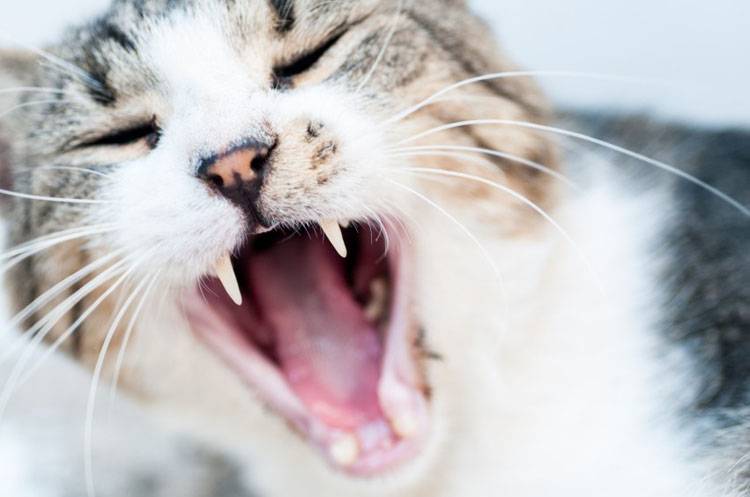Cat Hairball Remedy

Cats are fastidious groomers as we all know. When a cat grooms, the tiny, hook-like structures on the tongue catch loose or dead fur, which the cat then swallows. For the most part, this fur is passed through the digestive tract without incident, but some of the fur may stay in the stomach, developing into a hairball. Since this hairball must pass through the esophagus in order to be vomited up, it usually appears tube-like rather than round.
Symptoms of Hairballs in Cats
Long-haired cats are more likely to have hairballs as do cats who shed a lot or are compulsive groomers. A cat trying to expel a hairball will retch, gag and hack, but will usually vomit the hairball without trouble. However, problems can occur when the hairball cannot be vomited. Frequent gagging or vomiting undigested food, or a lack of appetite, swollen abdomen, sluggishness, diarrhea or constipation may be an indication a hairball has caused a blockage.
This blockage makes it impossible for the cat to either vomit or have a bowel movement, which constitutes an emergency situation. If you suspect that your cat has a blockage, contact a veterinary assistant immediately. There may be several options that the veterinarian can do, but a severe blockage will require surgical removal.
RELATED: Reduce Your Pet’s Anxiety with Happy Hoodie
How to Reduce Amount of Hairballs
Regularly Brush Your Cat
Although you can’t prevent hairballs, you can reduce the amount and frequency. Home remedies, such as butter and oils, should not be used as they may cause other digestive problems.
One of the easiest ways to reduce the amount and frequency is to groom your cat on a regular basis. Many cats will accept brushing or combing by their owners. For those who don’t like being brushed should be taken to a professional groomer for a brushing and possible haircut, especially for long-haired breeds.
Try Hairball Products
There are many hairball products on the market that are actually a mild form of a laxative, which helps the hairball pass through the digestive tract. Most are petroleum-based and are flavored to make them more appetizing to the cat. There are also special hairball formula cat food on the market that contain a high fiber formula. This formula not only helps hairballs pass through the digestive tract, but they also help reduce shedding and can improve your cat’s coat.
Provide Water and Toys
Water is also important for your cat’s digestive system. Be sure the water is clean, fresh and easily accessible. If you suspect your cat is a compulsive groomer, try offering other distractions, such as a new toy to play with or a toy you can play with together.
You can’t stop a cat from grooming, but you can help prevent problems associated with hairballs with these simple preventive practices.
READ MORE: Psychogenic Alopecia in Cats





